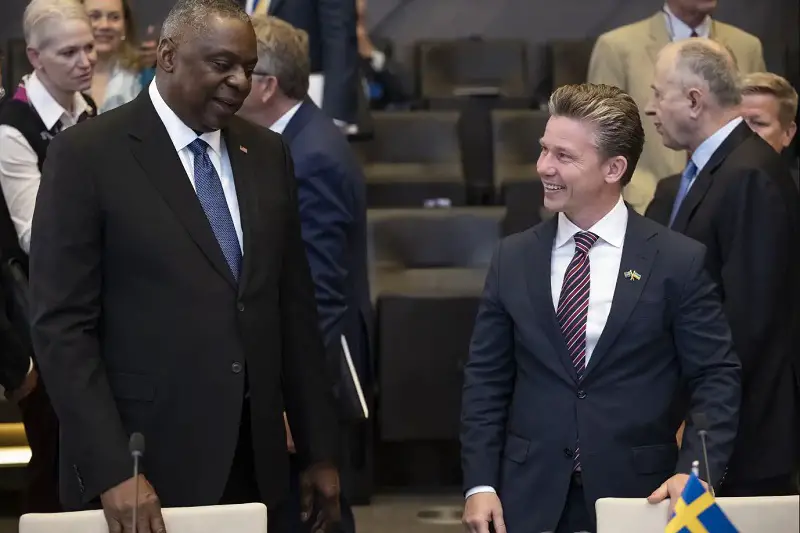In a significant development, NATO Secretary General Jens Stoltenberg announced today that NATO plans to invite Ukraine into a new NATO-Ukraine defense council as an equal member. Stoltenberg made the announcement during a press conference held in Brussels, emphasizing NATO’s commitment to strengthening its relationship with Ukraine and bolstering European security. The details of the council will be unveiled next month at NATO’s summit in Vilnius, Lithuania. This move signifies NATO’s determination to enhance cooperation with Ukraine and integrate the country further into the alliance’s defense structures. By establishing a dedicated council, NATO aims to facilitate better coordination, cooperation, and interoperability between member nations and Ukraine in matters of defense.
During the meeting, NATO leaders unanimously agreed to prioritize defense production, standardize munitions, and improve command and control interoperability among NATO nations and Ukraine. This concerted effort will contribute to enhancing the collective defense capabilities of the alliance and ensuring a robust response to emerging security challenges. NATO’s intention to bring Ukraine closer to alliance membership was also emphasized by Secretary General Stoltenberg. NATO’s open door policy regarding membership remains firm, and Russia’s influence cannot impact the alliance’s decision-making process. Stoltenberg expressed optimism about welcoming Sweden into the alliance in the near future, further reinforcing NATO’s commitment to broadening its membership and strengthening collective security.

In addition to discussing Ukraine’s integration, NATO leaders also reached a consensus on setting a minimum defense spending requirement for member nations. It was agreed that each member should allocate at least 2% of its gross domestic product (GDP) to defense. Stoltenberg clarified that this figure should be regarded as a minimum threshold, not a ceiling. NATO encourages member nations to exceed the 2% target as a means of enhancing collective defense and ensuring the safety of their citizens in an increasingly volatile world. NATO’s concerns regarding global security challenges were also addressed by Secretary General Stoltenberg. He condemned Russia’s reckless nuclear rhetoric and its plans to deploy nuclear weapons to Belarus. Stoltenberg further expressed apprehension about China’s nuclear expansion and North Korea’s missile testing, emphasizing the importance of vigilance and robust deterrence measures to maintain international stability.
The expansion of support to Ukraine and the modernization and standardization of munitions were warmly welcomed by the United States Secretary of Defense, Lloyd J. Austin III. Secretary Austin highlighted the significance of these initiatives in strengthening NATO-Ukraine interoperability and bolstering collective defense. He echoed Stoltenberg’s sentiments regarding the 2% GDP defense spending requirement, emphasizing its role in enhancing readiness levels and ensuring a credible deterrence posture. Secretary Austin also mentioned that Sweden’s potential membership in NATO will be discussed at the upcoming summit. This highlights NATO’s commitment to deepening partnerships beyond Europe and fostering security cooperation with nations in the Indo-Pacific region. NATO aims to ensure a free and open Indo-Pacific, promoting stability and prosperity in collaboration with its partners in the area. The decision to invite Ukraine into a new NATO-Ukraine defense council as an equal member demonstrates NATO’s commitment to reinforcing European security and fostering cooperation with its partners.















